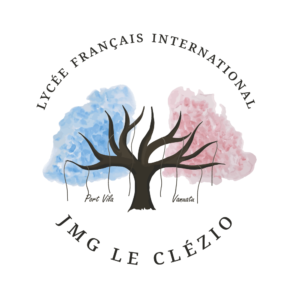School Council at Primary School (Preschool and Elementary)
Duties
The School Council adopts the school’s internal regulations upon the proposal of the school principal.
This council is imperatively consulted on all matters relating to the functioning and life of the school, especially :
- Educational structures
- The organisation of time and the school calendar
- The school project in its primary education section, proposed by the teaching staff council
- Specific actions to ensure better use of resources allocated to the school and proper adaptation to its environment
- The conditions for accommodating students with special educational needs
- Projects and the organisation of discovery classes
- Issues related to hygiene, health, and the safety of students in both school and extracurricular settings
- The principles for selecting educational materials and tools
- Matters related to welcoming, informing parents, and their general participation in school life
- The annual action plan for the school-middle school council
- The annual action plan to combat all forms of violence, discrimination, and harassment
- The annual action plan for education on sustainable development
Configuration
The School Council is chaired by the primary school principal.
The following are ex officio members:
- Chairing with the right to vote:
– The primary school principal
– 15 teachers, including at least one from each grade level
– One of the specialised teachers working at the school, when the position exists, chosen by the teaching staff council
– 15 representatives of the parents of students, including at least one from each grade level
- Chairing with a consultative voice:
– The head of the school-highschool
– The administrative and financial director
– The National Education Inspector in residence
What’s more, representatives of other staff members working at the school may also attend the School Council, with a consultative voice.
The president, after consulting the council, may invite any person whose consultation is deemed useful based on the agenda.
Parents Designation
The representatives of the parents of students are elected by proportional representation using the highest remainder method. For each regular member, an alternate is elected under the same conditions.
Each list of candidates includes, ranked in a preferential order that will determine the allocation of seats, the names and surnames of the candidates, without distinction between regular members and alternates. The lists may contain up to twice the number of candidates as there are seats to be filled. They may not be complete but must include at least two names.
Each legal representative (parent, guardian, etc.) is eligible to vote and stand for election, provided they have parental authority over the child enrolled in the institution, as verified, subject to compatibility with local law (evaluation by the head of the establishment).
Each legal representative (parent, guardian, etc.) has only one vote, regardless of the number of their children enrolled in the institution.
The staff members of the primary school working at the institution, who are ex officio members of the School Council, are not eligible to be elected within the parents’ representatives group.
The term of office for the elected members of the School Council is one year and expires on the day of the first meeting of the council following its renewal.
The school principal is responsible for preparing the elections and organising the vote.
How it operates
The School Council is constituted for one year and holds valid meetings until the renewal of its members.
The School Council meets in ordinary sessions with a specific agenda at least once per trimester, and necessarily before the governing council and before any extraordinary governing council if the agenda justifies it.
It may also be convened in an extraordinary session at the request of the school principal or half of its members with voting rights.
The agenda and preparatory documents are sent to the council members at least ten full days before the meeting date. This period may be reduced to three days in case of urgency.
At the start of each meeting, the president arranges for the designation of a session secretary and an assistant secretary, who are responsible for writing the minutes. The assistant secretary is chosen alternately from among the staff and parent representatives.
The minutes report is read by the president and adopted at the start of the following session. They are then sent to the members of the School Council and the governing council, posted on the school premises for a period of four months, and published on the website. The members of the educational community are informed of the availability of the minutes.
Teachers’ Council
The Teachers’ Council of the school consists of:
- The principal, as president
- All teachers working at the school
- Substitute teachers working at the school during the council meetings
- Members of the specialised support network working at the school
It meets at least once per trimester, outside of the teaching hours due to the students, and whenever the president deems it necessary or when half of its members request it.
An editable agenda is prepared and sent before each Teachers’ Council meeting.
A summary of the outcomes of the Teachers’ Council is prepared and signed by its president, and recorded in a special register, which is accessible – either digitally or otherwise – and kept at the school. A copy is sent to the IEN (Inspector of National Education) of the area.
The Teachers’ Council provides its opinion on:
- The organisation of tasks, duties (and supervision of them) which are then finalised by the school principal, and distributed
- The allocation of students between classes and groups,
- The teachers’ schedule and their usage arrangements of the school premises when they are used for teaching and training purposes
- The formation of skill groups for teaching foreign languages
- All issues concerning the school life
- It establishes, for each school year cycle, a cycle teachers’ council, which cannot though, assume the role or responsibilities of the Teachers’ Council,
- It can propose parents’ involvement in educational activities and provides its opinion on the contribution of individuals involved in education within the framework of mandatory teaching activities,
- It drafts the school project under the guidance of the school principal, a project that will be validated by the School Council.
At the end of each school year, the Teachers’ Council determines the conditions under which each student’s schooling will continue, aiming to ensure the optimal conditions for the continuity of learning, particularly within each cycle.
As an exception, in cases where the pedagogical support systems have not been able to address the significant learning difficulties encountered by a student, repeating the year may be proposed by the Teachers’ Council. This proposal is subject to prior discussion with the student’s legal representatives and requires the opinion of the IEN (Inspector of National Education) of the area.
The Teachers’ Council can decide whether a student has to repeat a school year or can skip a school year only once per cycle for the student’s entire primary education. However, in special cases, it may decide on a second skipping of a year, after obtaining the opinion of the IEN (Inspector of National Education) of the area.
The Teachers’ Council proposal is sent to the student’s legal representatives, who must provide their response within fifteen days. After this period, the Teachers’ Council makes its decision, which is communicated to the legal representatives.
Educational Cycle Teachers’ Council
The Educational Cycle Teachers’ Council consists of members of the teaching team working within a specific cycle.
The cycle council is chaired by a member chosen from within the group.
It develops the pedagogical part of the school project for the considered cycle and ensures the follow-up and evaluation of its implementation.
It may consult any person involved during school hours.
The Cycle Teachers’ Council assesses the progress of students in acquiring the various skills defined for the cycle.
The members of the cycle council regularly discuss the progress, achievements, and needs of the students.
It is responsible for making proposals regarding the transition of students from one cycle to another or not.

